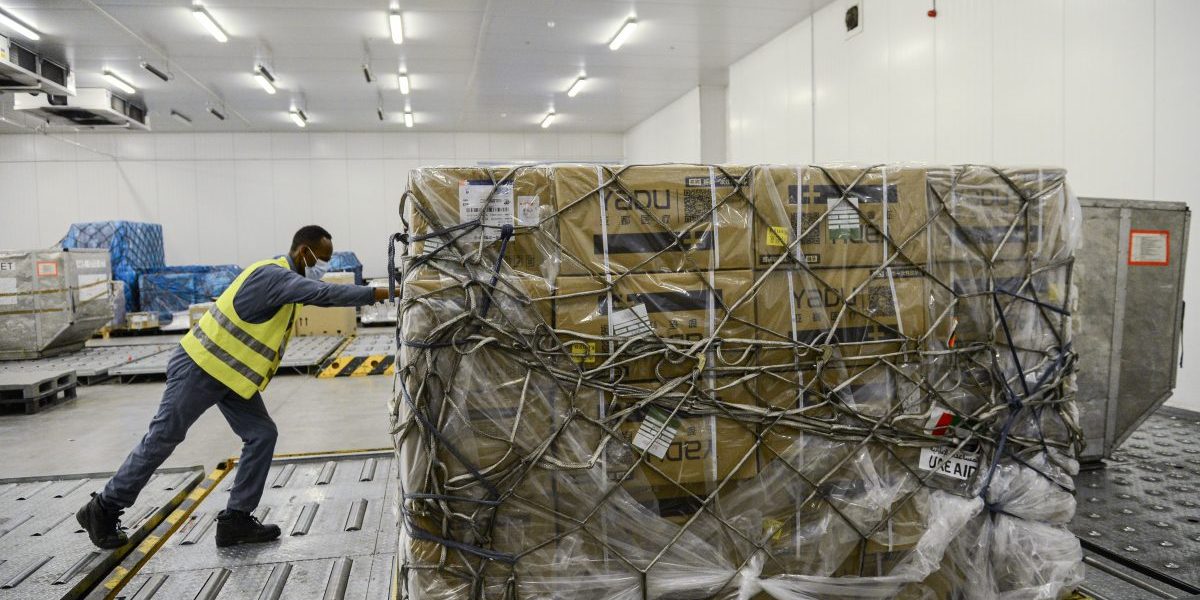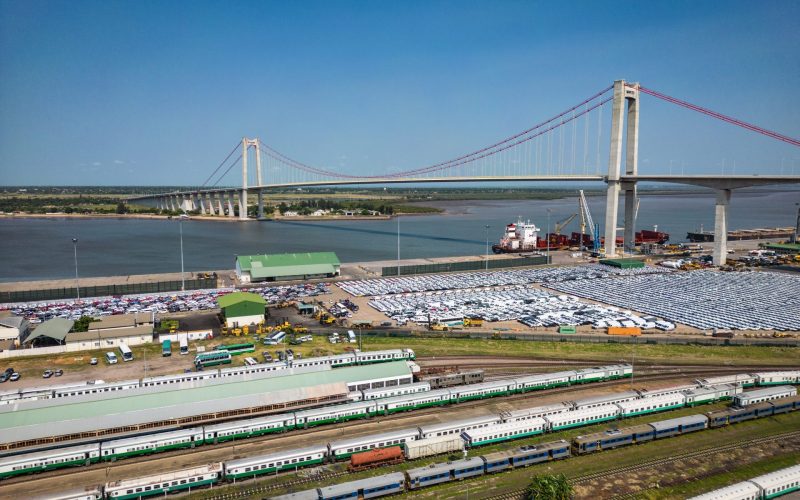While there is uncertainty about how long this pandemic will disrupt people’s lives and businesses, what is certain is the extent to which the coronavirus is having a very real impact on manufacturing and global and regional supply chains. These are largely the result of the closure of national borders, ports and airports and the shutdown of factories as businesses and governments take precautions by enforcing worker quarantines and instituting a range of lockdown measures.
By 1 April only 10 sub-Saharan African countries had not constituted measures to halt the spread of Covid-19, but by the time of writing that had changed significantly with only two countries (Lesotho and Comoros) not having registered any Coronavirus cases and all remaining countries having constituted some social distancing measures, varying from a total lockdown to curfews.
Slowdowns in productivity and increased costs are inevitable in this current environment and it will weigh heavily on investor confidence. The planned implementation of the African Continental Free Trade Area (AfCFTA) and its related timeline may be affected as key industries such as tourism, transportation and hospitality have been directly affected by travel bans instituted across the region.
This is a challenge – the United Nations Economic Commission for Africa (UNECA) has warned that the coronavirus will negatively affect Africa’s growth since its biggest trading partner (China) has been affected and revenues of oil-exporting nations could be reduced by US$ 65 billion as crude prices have tumbled. However, this is also an opportunity for African countries to promote intra-Africa trade through economic integration and enhance their economic cooperation.
The implementation of the AfCFTA will help African countries limit their dependence on external partners and increase their own interconnectedness.
Priority areas
In light of the current global challenges, efforts to implement the AfCFTA should be enhanced with a particular focus on achieving rapid progress in the following priority areas post the gradual easing of various lockdown measures:
(1) The successful implementation of the AfCFTA will depend on the ability of the African continent to diversify manufactured goods and adopt policies and introduce innovations that enhance the competitiveness of these goods compared to their international counterparts. Over the years, African countries have been exporting, in value, far more raw materials (minerals and agricultural produce) than they do finished products. Many African countries recognise that this is not economically sustainable option for the continent with its high population growth and pressing need for employment.
According to Brookings, intra-African trade prior to the COVID-19 pandemic stood at 18% compared to 59% in Asia and 69% in Europe. Furthermore, UNECA found that manufacturing output had been falling in the last decade, a phenomenon known as de-industrialisation. Efforts should be undertaken that seek to develop processing in Africa. But in the post-pandemic phase such a strategy only holds potential if industry 4.0 is embraced in Africa. Such an approach would not only lead to more distributed manufacturing and support the growth of small business, it could also spur manufacturing companies to become service companies.
It should also be recognised that post COVID-19, many countries globally are likely to seriously rethink their manufacturing approaches. The pandemic has done two things, it has exposed the interconnectedness of the global economy, but also the risks associated with a diversified manufacturing model pertaining to essential life-saving goods, such as pharmaceuticals, medicines and medical instruments. The fall-out of this realisation needs to be carefully integrated into Africa’s approach to the AfCFTA, as restrictions on the trade of life-saving products not only harm specific individuals or countries, but the broader public good. However, a dampening of the global trade agenda in the post-COVID-19 world is a real possibility that should spur greater ambition in the AfCFTA trade agenda.
(2) In line with global trends, tariffs on cross-border trade have decreased on the African continent over the last couple of decades. Signatories to the AfCFTA have recognised that tariffs on cross border trading must be significantly reduced if the free trade area is to be successful. However, some governments are concerned that the removal of tariffs on intra-African trade will reduce national revenues from customs duties. Customs duties can represent a significant percentage of the national fiscus. However, the removal of tariffs required under the AfCFTA customs union should relate only to intra-African cross border trade, not the duties on imports of finished goods into the AfCFTA from non-African countries. Nonetheless, provision should be made for the tariff free import of intermediary inputs which play a significant role in manufacturing value chains with links to Africa. The case for the removal of tariffs on cross-border trade is also justified by two further observations: first, as the free trade area stimulates the manufacturing base, other sources of tax will appear; and, second, to avoid trade distortions in the future, strict ‘rules of origin’ must be agreed upon and applied.
Moreover, achieving a net positive effect for intra-regional trade through the removal of tariffs, needs to be supported by the urgent removal of non-tariff barriers (NTBs). Unless the AfCFTA can dismantle growing NTBs, they will continue to distort intra-African trade both online and offline. African nations should start today to look deeply at their regulations and practices that may discriminate against their fellow members in the AfCFTA.
(3) One of the most striking dimensions of how the world has dealt with the pandemic, are the travel bans that have been instituted almost universally, choking off a critical source of income and foreign revenue for African countries, namely tourism. Indeed the damage inflicted by the pandemic on the broader services sector, the most important driver of Africa’s economy and related employment growth, will require a special effort to undo the harm that was done by some of the severely restrictive social mobility measures and closure of national borders introduced in many economies. However, it also underscores the importance of prioritising the services sector agenda in the AfCFTA negotiations with the eye to the future and making rapid progress in this area.
A projected lasting societal impact of COVID-19 is the affirmation of the importance of broad-based, fast internet connectivity as a fundamental building block of a 21st century economy. African countries need to start preparing now to rapidly roll-out supportive infrastructure in partnership with the private sector once the lockdown measures are lifted to enable the emergence of a more resilient knowledge economy in Africa. The regulatory dimensions enhancing cross-border connectivity require urgent attention in the finalisation of the AfCFTA.
(4) There are concerns about the ability of the AU Commission to deliver on the vast task it has before it. The first key issue which will need to be tackled very soon by the AU is rules of origin, which are critical in determining whether a product can carry the “made in Africa” label or not. Second, how can the AfCFTA function without some kind of arbitration court to iron out the many problems that will appear as the AfCFTA sets down basic rules for trade; harmonisation; mutual recognition of national laws; the legal effect of AfCFTA decisions; dispute resolution; the level of common tariffs; rules of origin; customs procedures; and trade defence instruments? Third, inevitably, the introduction of the Free Trade Area will not go unchallenged by the world’s major trading powers who will want to ensure that they have a ‘foot in the door’.
Consider possible future trade wars
A large proportion of the goods presently sold in Africa come from countries outside the continent. African policymakers also need to consider that new trade wars in the future, as one of the potential outcomes of the handling of the pandemic, or very slow progress in the reopening of markets after the pandemic, or the stalling of the free flow of goods in the developed world by the remnants of dealing with the pandemic, may close off the largest and most profitable global markets. This means that it will become increasingly important for the major trading powers to keep African markets open, but also for African markets to cooperate more closely. This requires a very careful calibration and an outstanding level of cooperation between African countries to ensure that the AfCFTA brings the region the dividends that African countries and their citizens are hoping for.
None of these issues are ‘low hanging fruits’. Most are highly complex and will require skilled staff both at the AU and at the national level. Already neutral observers can foresee issues arising between the large African countries which have the resources, and medium and small member states that have fewer resources and thus less leverage to influence the trajectory of the negotiations.
In an epoch of life-changing disruption on an unprecedented scale, African countries need to remember the importance of cooperation over competition and acting together in the interest of the public good, and should that be lacking, at least be guided by the maxim of enlightened self-interest. The successful achievement of the AfCFTA would be an important step in the right direction.








